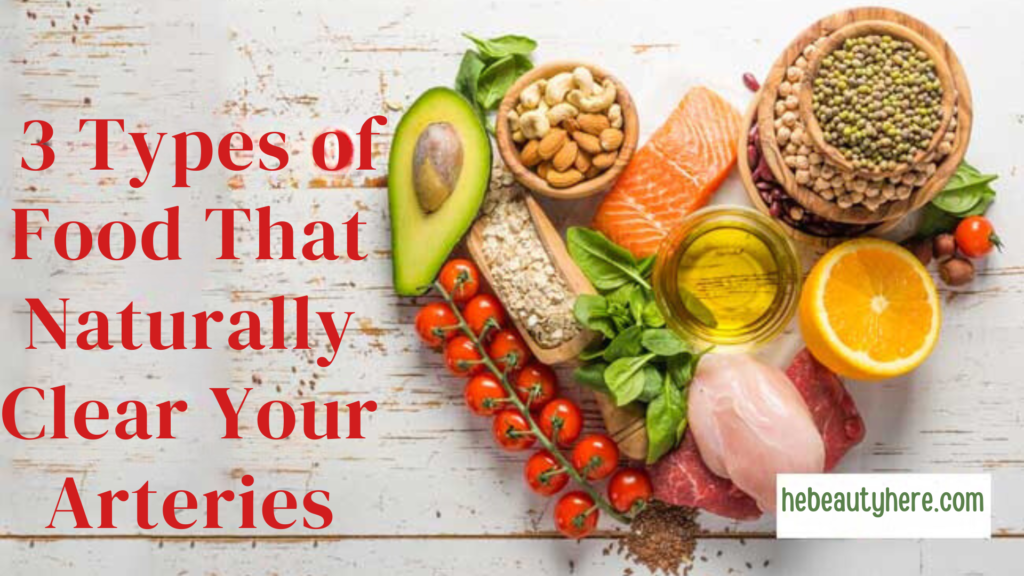Ulcerative colitis (UC) is a chronic disease that causes inflammation and ulcers in the large intestine. Diet is key in managing UC symptoms. This guide offers a 7-day meal plan to help manage UC through nutrition. 7-day meal plan for ulcerative colitis
The plan includes anti-inflammatory foods, essential nutrients, and easy-to-digest options. These are good for both flare-ups and when you’re in remission.

This 7-day meal plan is for managing UC, whether you’re in a flare or trying to stay in remission. It focuses on anti-inflammatory ingredients and gut-friendly foods. The recipes and guidelines aim to help you control your UC and improve your health.
Understanding Ulcerative Colitis and Nutrition Basics
Ulcerative colitis (UC) is a chronic disease that affects the large intestine. It causes symptoms like diarrhea, pain, and bloody stool during flare-ups. But, there are also periods without these issues. Eating right is key to managing UC symptoms and keeping your gut healthy.
How UC Affects Nutrient Absorption
UC can make it hard for your body to absorb important nutrients. So, it’s important to eat a balanced diet. During calm times, eat lean proteins, whole grains, fruits, and veggies. But, when you’re in a flare-up, a bland diet with less fat and fiber might help.
The Role of Diet in Managing Symptoms
Your diet needs change depending on your UC’s stage. Adjusting your fiber intake can help manage symptoms. Also, drinking plenty of water is key to avoid dehydration from frequent bowel movements.
Difference Between Flare and Remission Dietary Needs
In remission, you can eat a balanced diet that supports your gut. But, during a flare-up, a bland diet with less fat and fiber might be needed. A registered dietitian can help you make the right dietary changes for your UC.

Essential Nutrients for UC Management
People with ulcerative colitis (UC) need special nutrients to manage their condition. The right vitamins, minerals, and nutrients are key to staying healthy and easing symptoms.
Omega-3 fatty acids in fatty fish like salmon are great for fighting inflammation. Probiotics in yogurt and fermented foods help the gut. Antioxidants from fruits and spices like turmeric reduce inflammation too.
It’s important to eat enough protein to heal and keep muscles strong. Lean meats, eggs, and plant-based foods like legumes are good sources.
Calcium and vitamin D are also crucial, especially if you avoid dairy. Many with UC lack these nutrients. Supplements might be needed to meet daily needs.
Talking to a healthcare provider or a dietitian who knows about UC is a good idea. They can help make sure you get the right nutrients for managing your UC.

Anti-Inflammatory Foods for Ulcerative Colitis
Managing ulcerative colitis (UC) means making smart diet choices. Eating foods that fight inflammation can help ease your symptoms. Let’s look at how foods rich in omega-3 and antioxidants can help.
Omega-3 Rich Foods
Fatty fish like salmon, tuna, and mackerel are full of omega-3s. These fats are great at reducing inflammation. Adding these to your diet can really help. Walnuts, chia seeds, and flaxseeds are also good sources.
Antioxidant-Rich Options
Fruits and veggies full of antioxidants are key for UC management. Berries, leafy greens, and colorful veggies like bell peppers and carrots are great. They fight inflammation and support your gut.
Probiotic Foods for Gut Health
Keeping your gut microbiome healthy is crucial for UC patients. Foods like yogurt, kefir, and fermented veggies are full of probiotics. They help balance your gut and support digestion.
Eating these anti-inflammatory foods can help manage UC symptoms and improve gut health. Always talk to your doctor or a dietitian to tailor a diet plan that’s right for you.

Foods to Avoid During UC Flares
Living with ulcerative colitis (UC) can be tough, especially when you’re in a flare-up. It’s key to watch what you eat during these times. Some foods can make UC worse, so it’s important to know which ones to avoid.
Stay away from high-fiber foods, spicy dishes, and dairy if you can’t digest lactose. Also, skip foods high in fat like fried foods. Red and processed meats, alcohol, and caffeine can make symptoms worse. Highly processed foods and artificial sweeteners can upset your gut, making things harder.
Keeping a food diary can help you find out which foods are bad for you. This way, you can choose not to eat them when you’re in a flare-up. By doing this, you can make your recovery easier and manage your ulcerative colitis flare diet better.
Remember, what foods to avoid can differ for everyone. It’s important to listen to your body and adjust your diet as needed. With the right foods and a focus on UC trigger foods, you can handle UC flares better and recover faster.
7-Day Meal Plan for Ulcerative Colitis
Managing an ulcerative colitis diet can be tough. But, a good meal plan can really help. This 7-day plan includes foods that are full of nutrients and easy to digest. They help control your symptoms and keep you healthy.
Daily Caloric Requirements
Your daily calorie needs depend on your age, gender, weight, and how active you are. Talking to a dietitian who knows about inflammatory bowel diseases (IBD) is a good idea. They can figure out what you need for your UC meal plan. Generally, people with UC need 25-35 calories per kilogram of body weight each day. 7-day meal plan for ulcerative colitis
Portion Control Guidelines
It’s important to control your portions when you have ulcerative colitis. Eating smaller meals often can help your stomach feel better. Try to eat balanced amounts of lean proteins, cooked veggies, and fruits that are low in fiber.
Using this 7-day UC meal plan can make eating easier and help you manage your symptoms better. Remember, everyone is different. So, work with your healthcare team to make this plan fit your needs.
Breakfast Options and Meal Ideas
Living with ulcerative colitis (UC) can be tough. But, finding the right breakfast can help a lot. A good morning meal can boost your day and give your body what it needs.
Try smoothies with bananas, kefir, and protein powder for a UC-friendly start. Oatmeal with a banana and almond butter is also great. It has carbs, fiber, and fats to keep you full and energized. 7-day meal plan for ulcerative colitis
Scrambled eggs with whole wheat toast and avocado are another good choice. They offer protein, carbs, and fats for a balanced meal. 7-day meal plan for ulcerative colitis
If you want something light, try a Greek yogurt parfait. Add low-fiber fruits like strawberries or pineapple, and a bit of granola. It’s tasty and easy on your gut. Always listen to your body and adjust based on what you can tolerate. 7-day meal plan for ulcerative colitis
Adding these UC-friendly breakfasts to your routine can help manage your symptoms. It’s a great way to start your day. Talk to a dietitian who knows about IBD to make a meal plan that’s right for you. 7-day meal plan for ulcerative colitis
Lunch and Dinner Combinations
Managing ulcerative colitis (UC) means choosing easy-to-digest meals for lunch and dinner. Try grilled chicken with steamed veggies and quinoa or baked salmon with sweet potato and green beans. These meals are balanced and gentle on your stomach.
For a quick lunch, consider a turkey avocado wrap or a vegetable soup with lean protein. These options are both tasty and easy to make.
Quick and Easy Recipes
Sheet pan meals and stir-fries are perfect for UC. They’re simple and quick to make. These recipes use ingredients that are easy to digest.
Feel free to adjust the spices and seasonings to suit your needs. This way, you can enjoy your meals even during flare-ups. 7-day meal plan for ulcerative colitis
Make-Ahead Meal Suggestions
Preparing meals ahead of time can save you a lot of effort. Try making grain bowls with roasted veggies or slow cooker meals. You can also prep proteins like baked chicken or grilled fish. 7-day meal plan for ulcerative colitis
These meals are ready to go, making it easier to manage your UC symptoms. Remember, the goal is to eat well-cooked, gentle foods that fit your needs. 7-day meal plan for ulcerative colitis
By using these UC lunch ideas, dinner recipes, and meal prep tips, you can take care of your body. This helps you manage your UC better. 7-day meal plan for ulcerative colitis
Smart Snacking with UC
Finding the right snacks during ulcerative colitis (UC) flares or calm periods can be tough. But, adding UC-friendly snacks to your diet can keep your energy up and give you the nutrients you need. These snacks are great for managing UC, whether you’re in a flare or trying to keep your condition under control.
Hard-boiled eggs are a top pick for UC-friendly snacks. They’re packed with protein and omega-3s. Smooth nut butters, like peanut or almond butter, with fruits like bananas are also good. Greek yogurt with honey is another great choice, offering probiotics and calcium.
Hummus with veggies like carrots or zucchini is a tasty and healthy snack. It’s made with protein-rich chickpeas and olive oil, which can help ease UC symptoms. Low-fat cheese with whole-grain crackers is another snack that’s easy to digest and full of nutrients.
It’s important to watch your portion sizes when snacking with UC. Too much can make symptoms worse. Pick snacks that work for you and talk to a healthcare pro or dietitian to make a snacking plan that helps manage your UC. 7-day meal plan for ulcerative colitis
Hydration and Beverage Guidelines
Drinking enough water is key for managing ulcerative colitis (UC). You should aim for at least 8 cups, or 64 ounces, of fluids every day. If you’re having a flare-up or more bowel movements, you might need even more water to stay hydrated.
Recommended Daily Fluid Intake, 7-day meal plan for ulcerative colitis
Water is the best drink to choose. Drink it all day to help your digestive system work right. Herbal teas like chamomile or peppermint can also help, as they might reduce inflammation. Clear broths can add hydration and electrolytes when you’re having a UC flare-up. 7-day meal plan for ulcerative colitis
Best and Worst Beverages
Some drinks are better for UC than others. Water, electrolyte-rich drinks, and low-fat milk alternatives like almond or oat milk are good choices. They’re easy on your stomach and can add nutrients. But, try to limit or avoid alcohol, caffeinated drinks, and sugary drinks. They can upset your stomach and make UC symptoms worse. 7-day meal plan for ulcerative colitis
Discover more trends:
- The Ultimate Guide to Achieving a Flat Belly Through Optimal Beverage Choices
- The Finest (and Only) Weight Loss Advice You’ll Ever Need
- 12 Ways to Stop Your Stomach From Growling Loudly
- weight loss in a week diet plan
- rheumatoid arthritis muscle pain treatment
- Follow us on Facebook
- Follow us on Pinterest





